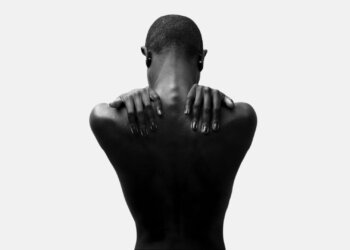No products in the cart.
How Menstrual Cycles Affect Women’s Mental Health
When it’s that time of the month, do you find yourself feeling like fuck-the-world-and-everyone-in-it? Do you feel down, anxious, grumpy, or irritable? Well, you’re not alone. Most women, over 90%, experience symptoms during the different stages of their menstrual cycles ranging from physical manifestations to fluctuations and changes in the state of their mental health.
The physical manifestations of the menstrual cycle can be trying enough; cramps, bloating, numerous aches and pains— but coupled with the fact that women’s mental health is also intrinsically connected to our menstrual cycles, the times are doubly trying. Many women experience emotional and behavioural symptoms like irritability, anxiety, and depression at various phases during their menstrual cycles, especially in the weeks leading up to their period.
So, What Actually Goes On?
The menstrual cycle is characterised by relatively predictable and recurrent fluctuations in the ovarian hormones, oestrogen and progesterone, throughout the four phases — menstruation, the follicular phase, ovulation and the luteal phase. The menstrual cycle begins on the first day of your period, and oestrogen and progesterone levels are low at this time. Studies show that low levels of oestrogen affect the chemicals your brain releases and are linked to low levels of serotonin, the “happy chemical”, which is instrumental in body functions such as sleep, sexual desire, mood, digestion, wound healing, nausea, bone health, and blood clotting. Oestrogen levels peak and progesterone levels rise right before ovulation, preparing your body for conception. If the egg is not fertilised, then the levels fall again, and the cycle repeats itself.
The hormones involved in the menstrual cycle rise and fall through the phases and these hormonal changes and fluctuations affect ovulation and can cause an array of symptoms like acne, dark moods, headaches, bloating, and appetite changes. These highs and lows can make you wish the world would stop, but unfortunately, it carries right on.
These cyclical changes may influence women’s mental health in a variety of ways. Many women experience physical discomfort like dysmenorrhea, breast tenderness, and joint pain around menstruation, and this physical discomfort can be associated with increases in psychological distress, irritability, and decreased self-esteem. Additionally, strong evidence indicates increases in psychosis, mania, depression, suicide/suicide attempts, and alcohol use during these phases. Anxiety, stress, and binge eating also appear to be elevated more generally throughout the luteal phase, right before the period begins.
In the same way hormonal changes during the menstrual cycle may affect your mental health, your mental health may also affect your menstrual cycle. Stress can make periods more painful, shorten them, or even stop them altogether, and women with high-stress levels are twice as likely to go through dysmenorrhoea, which is painful menstruation, typically involving abdominal cramps.
These hormonal fluctuations manifest in multiple ways, including Premenstrual Syndrome (PMS), Premenstrual Dysphoric Disorder (PMDD) and Perimenopausal Depression, which are menstrually-related mood disorders.
Premenstrual Syndrome (PMS)
Premenstrual Syndrome (PMS) refers to the symptoms that women typically experience between ovulation and their period. Emotional and behavioural signs and symptoms may include mood swings and irritability or anger, social withdrawal, crying spells, appetite changes and food cravings, fatigue, anxiety and depression, and it is estimated that as many as 3 in 4 menstruating women have experienced some form of premenstrual syndrome.
Premenstrual Dysphoric Disorder (PMDD)
Premenstrual Dysphoric Disorder (PMDD) is a more severe form of PMS, affecting 5-10% of women in their reproductive years. PMDD is commonly defined as an endocrine disorder, meaning that it is a hormone-related disorder, and it is characterised by more significant premenstrual mood disturbance.
Many women with PMDD experience clinical levels of depression or anxiety a week or two before each menstrual cycle, accompanied with fatigue, trouble focusing and panic attacks. It is not uncommon that the emotional symptoms of depression, anxiety and irritability may be severe enough to seriously impair normal daily functions and relationships. In America, PMDD is listed as a mental health problem in the DSM-5, one of the main manuals doctors use to categorise and diagnose mental health problems. Symptoms typically subsist in the week or two before menstruation and resolve completely with the onset of the period.
An estimated 40% of women who seek treatment for PMDD experience a cyclic exacerbation of underlying mood disorders rather than PMDD, as the hormonal fluctuations associated with menstrual cycles impact already existing mental health conditions.
Perimenopausal Depression
Perimenopausal depression is another menstrually-related mood disorder that affects women at the onset of menopause. Symptoms may include feeling overwhelmed and unable to cope, social isolation, emotional flatness, irritability, decreased energy, tearfulness, and an inability to enjoy normal activities and relationships.
Perimenopause is the transitional period from normal menstrual periods to menopause, the permanent cessation of menstruation. This transition period can range between a few months and a few years. Some symptoms of the perimenopause period include hot flashes, vaginal dryness, insomnia, and mood problems such as perimenopausal depression.
My Advice for Dealing With the Effects of PMS:
I personally have horrible PMS— cramps, mysterious pains and aches, heightened anxiety, crying spells (and anything from cat videos to videos of performances by singers I like can trigger them) and depressive episodes. So, I track my menstrual cycle with period tracker apps like Flo or the iPhone health app, and when I find myself feeling more angsty than normal, I check and usually, I see that my period is one or two weeks away, and everything makes sense again. Knowing what phase of my cycle I’m in helps me do what I can to combat my symptoms, so tracking your periods may be a helpful way to manage PMS. When my period passes and I enter into the other stages of my cycle, the haze typically lifts, so even when it feels like it might last forever, I know it likely won’t.
Times of intense hormonal fluctuation can cause increased vulnerability to depression, even in women with no prior history of depression. So, if you find yourself feeling inexplicably low in the weeks leading to your period, chances are, it’s hormonal and related to your menstrual cycle. Fortunately, medication and lifestyle changes like exercising, eating healthy, getting adequate rest, and reducing stress by meditation, yoga or fun, leisurely activities can help women control the mood changes and other emotional difficulties associated with PMS.
However, if you have been unable to manage your PMS with lifestyle changes and the symptoms are affecting your health and daily life, it is advisable to see a doctor.















